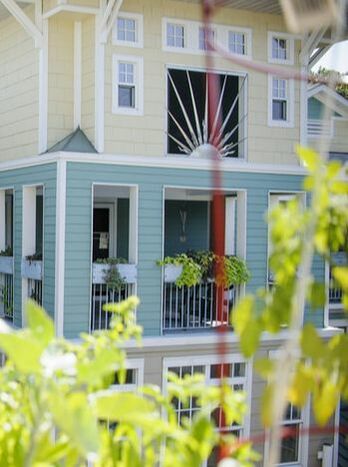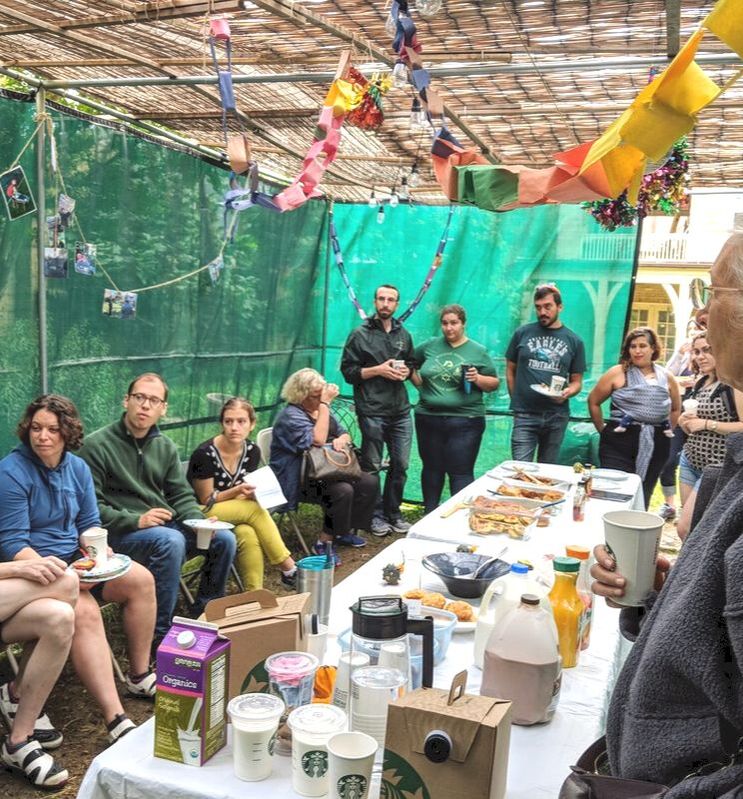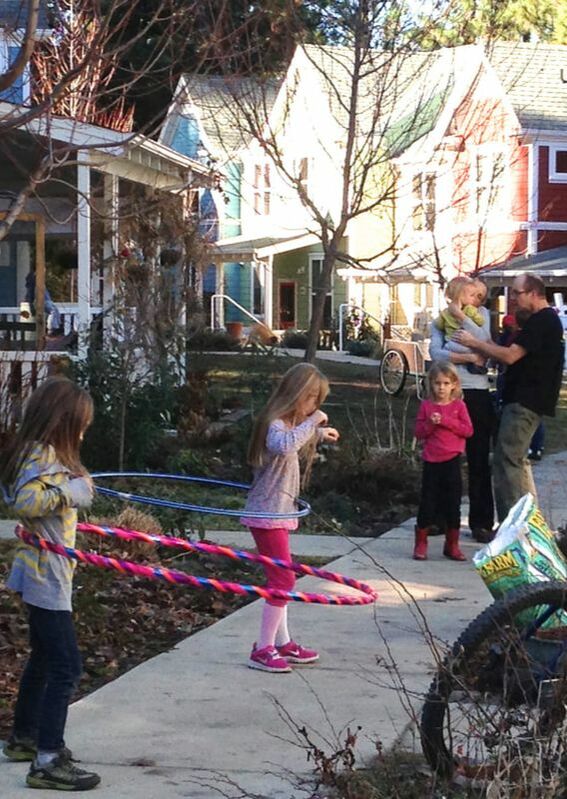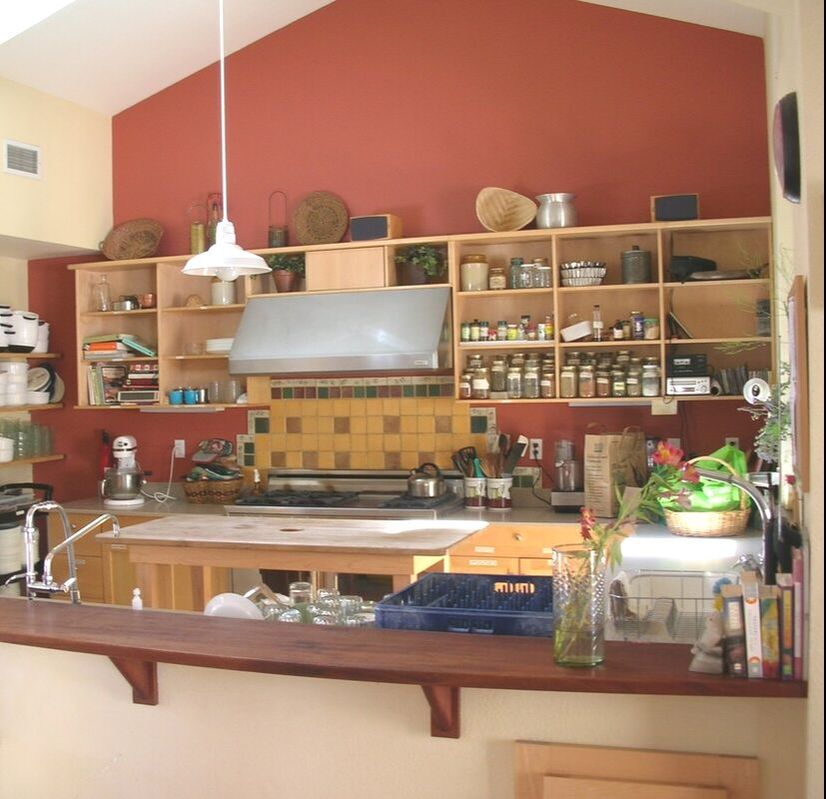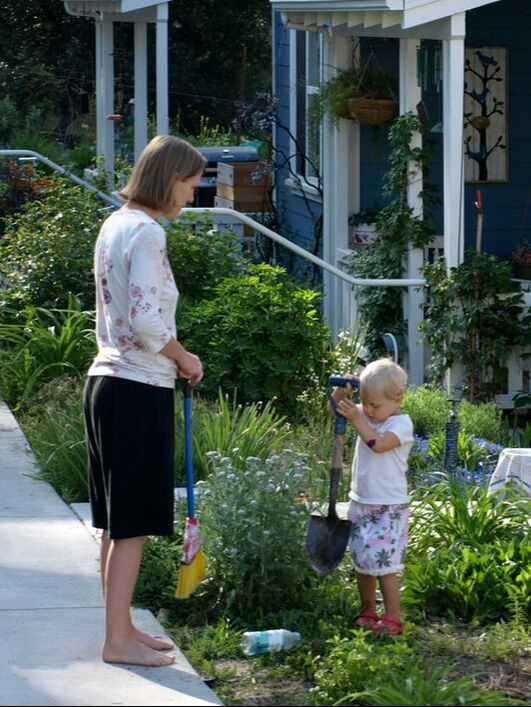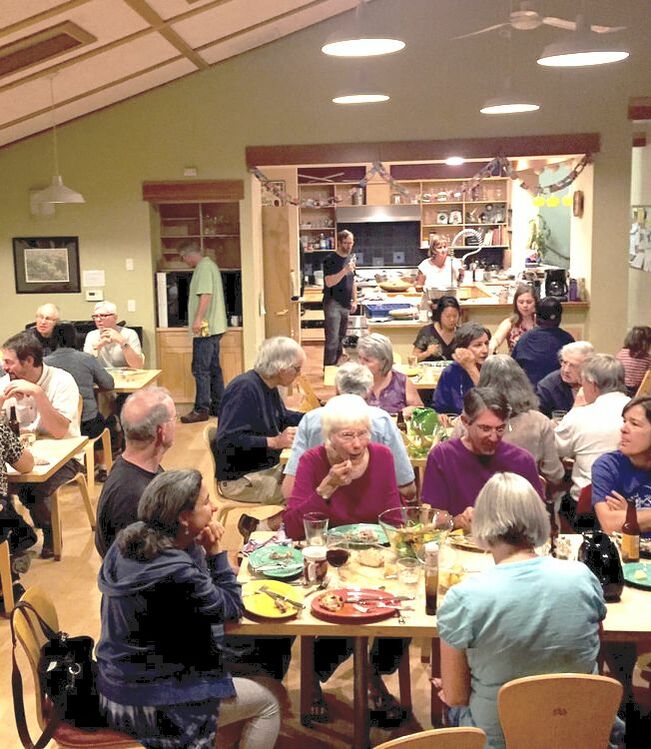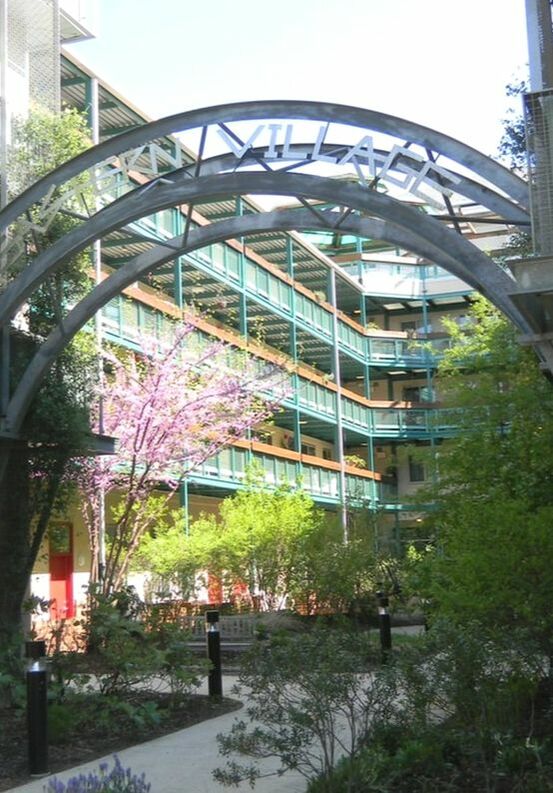Join us for an information session on January 18 or 23!
Berkeley Moshav: Frequently Asked Questions |
|
What is Berkeley Moshav?
We are a forming cohousing community in Berkeley, CA where Jewish life will be a prominent component of community life. What does cohousing look like? Cohousing is a form of intentional neighborhood, with private homes and extensive common facilities, in which residents know their neighbors well and engage deeply in community life. Common facilities include a community kitchen and a great room that can be used for meals, celebrations, and other community events. Other shared amenities may include indoor or outdoor recreation spaces, a community garden, a children’s playroom, guest rooms, an art or exercise studio, a workshop, office space, and vehicles. Buildings are purposefully designed to support and promote community among residents. Individual homes are privately owned and have the full suite of amenities typical to private homes, including full kitchens. Residents have the opportunity to gather for community meals two to four times per week and share a commitment to community, a respect for privacy, and the reward of daily connection, planned and impromptu gatherings, and being a part of each other’s lives. Cohousing was developed about 50 years ago in Denmark, and more than 1% of the Danish population currently lives in cohousing. There are 168 cohousing communities across the U.S. What would Jewish cohousing look like? Jewish cohousing is a form of cohousing where much of the connection among neighbors occurs through Jewish ritual, tradition, culture, and values. Residents have the opportunity to do many Jewish things together: celebrate Shabbat and holidays, study Jewish text and topics, learn Hebrew, take on tikkun olam (social action) projects, say kaddish, etc. A Jewish cohousing community can be thought of as a year-round, all ages Jewish summer camp where Jewish life is integrated with daily life and responsibilities. Jewish life will help connect cohousing members to one another, and living together in cohousing will nurture our Jewish life. Who will live in Berkeley Moshav? Anyone who wants to live in a close-knit, intentional Jewish community. Our vision is to be an inclusive community of households diverse in age, income, family composition, and Jewish observance. We are open and welcoming to people of every religion, ethnicity, gender identity, and sexual orientation. Do I have to be Jewish to live in Berkeley Moshav? Nope. While we have a distinct focus on Jewish tradition and values, we are open to everyone irrespective of religious affiliation. Much like cohousing attracts people who want to engage their immediate neighbors in regular, meaningful community, we imagine Berkeley Moshav will attract people who want much of this neighborly engagement to occur via Jewish ritual and culture. But residents need not be Jewish or participate in Jewish-related activities, and while many of our communal activities will involve Jewish life, we will engage communally in other ways too. We also intend to participate fully in the life of the surrounding civic community, being good neighbors, hosting neighborhood events, sponsoring service projects, supporting local initiatives and businesses, and offering support and community to people of all faiths and backgrounds. Where will Berkeley Moshav be located? We have acquired a site within walking distance of two Berkeley synagogues, Netivot Shalom and Beth Israel. For the address and additional information, click here. When will this happen? It will take at least three years for architectural design, planning approvals, and building construction on our newly acquired site. In the meantime, we will be building our group, becoming a community even before we move in! How much will it cost? It’s hard to produce accurate cost estimates until we have city-approved plans, but we expect prices to be similar to other newly constructed Berkeley condominiums. We'll be selling homes at cost and currently estimate that prices will start in the upper $800Ks, depending on home size. Homes include access to 3,000 square feet of shared common space plus a 5,000 square foot courtyard, amenities which would not be available in most standard housing. Note also that these are estimates of prices for three years from now, not for today's market. (Berkeley home prices have increased about 8% per year, on average, over the past ten years.) Finally, Berkeley Moshav isn't just another place to live; it's a place to live in community, something that's very hard to find anyplace else! What will the buildings look like? We’ll likely be in single, newly constructed building. From the outside it will resemble a standard condominium, but on the inside it will be designed to foster community. There will be a dining hall where we can all eat together, a kitchen where we can cook for these meals, and other spaces to play and relax together, likely including outdoor space. The “flow” will direct people through communal and social space before entering private space, to create more moments for connection. In this space, we’ll eat and play together, engage in Jewish life together, support one another, and help each other with day-to-day life (grocery shopping, errands, meals, child and pet care, etc.). How will you accommodate differences in Jewish observance? We’ve put a great deal of thought into this, since we intend to create a community of households that are diverse in Jewish observance. Within each household, Jewish practice is entirely at the discretion of that household. In communal spaces, we strive to accommodate everyone and realize this will require compromise. Practically speaking, our communal kitchen will be kept traditionally kosher. Our dining hall, however, can be used for meals that are not traditionally kosher, as long as they are vegetarian and use separate dishes. On Shabbat and Jewish holidays, central communal spaces will generally be set aside for engaging with tradition, learning, family, and friends; for eating, singing, joy, ritual, and connection. We will be flexible about the use of more ancillary communal spaces, such as a laundry room, studio, library, or garden. Because music is important in some modes of Shabbat practice and not permitted in others, we will seek a balance between Shabbats when we will have (non-amplified) music and those when we will not. Our guiding principle is to create a “Shabbat vibe” that is respectful and inclusive of members’ needs and supports the communal experience of Shabbat. How can I get involved? If you're interested in joining our forming community and living in Berkeley Moshav once it's built, email us to let us know! The sooner you join, the more input you’ll have into the development of the community, the more choice you’ll have among homes, and the more community you’ll enjoy along the way. Not ready to join but want to stay informed? Then join our email list! You can also take our online survey. And don’t hesitate to email us with questions, to set up a time to meet, or to let us know that you’re interested to explore becoming a member! |

